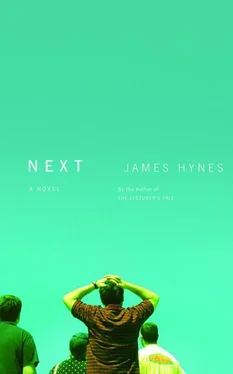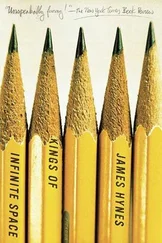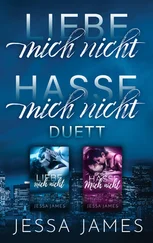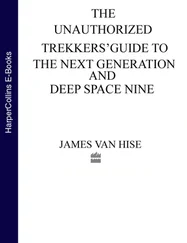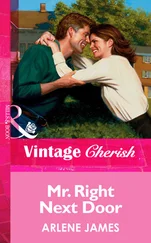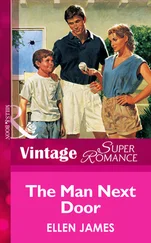This would have silenced Beth, because it would have made her furious, leading to an explosion later on. But give Stella credit, he’s thinking now, in the heat under the pedestrian bridge in Austin, Stella’s not an idiot, Stella can read subtext like a Kremlinologist. And Stella’s wily, she’s not a slugger like Beth was. Stella would never ask him point-blank, “Don’t you want to be with me for the next eighteen years?” No, Stella’s got footwork, Stella floats like a butterfly and stings like a bee. Stella knows how to not take no for an answer.
“You’d be so cute, ” she’d said, reaching across the car. His hood was pushed back around his earlobes, and her glove rasped along the fabric as she stroked the side of his head. “You’ll have graying sides at her graduation, like that guy on The Sopranos. ”
“Paulie Walnuts?” Kevin said. “That’s your role model for fatherhood?”
Stella laughed and said, in her best HBO Jersey accent, “He’s a good earner!”
Then she cracked open the plastic shell and filled the car with the warm scent of turkey loaf, popping a piece between her lips. Leaving Kevin’s head ringing with the idea of children, just like she meant to.
But who would bring children into the world, now? The pillars under the ramp of the pedestrian bridge are spattered with stickers and stenciled slogans, which Kevin recognizes from the kiosks and sidewalks around the Diag back home. HAPPY OILDEPENDENCE DAY says one sticker. 100,000 DEAD IRAQIS — HAD ENOUGH WAR YET? says another. That’s the pitch he needs to try on Stella, to discourage her from childbearing. New York, Madrid, London, Mumbai — it’s only a matter of time before it happens again: not if, but when — and next time it’ll be a car bomb on State Street, a suicide bomber at Briarwood Mall, an airliner dropped from the sky over Metro by a Stinger. Plague virus in a reservoir, nerve gas in the subway, a nuke in a cargo container. Everybody knows it, even Stella. Buchanan Street Station freaked her out, too.
“When I’m in Chicago next week?” she told him that night, standing behind the couch, watching CNN over his shoulder, clutching her elbows. “I may have to ride the El. I mean, God!”
Maybe that’s why she clings to him at night, why she wakes up wild-eyed and trembling like a child. He passes another stenciled slogan that reads
ISLAM IS
NOT THE ENEMY,
and instinctively Kevin hears the dismissive grunt of his late Uncle Stan, his mother’s oldest brother. Stan was a jowly, gin-blossomed veteran of World War II, owner of a Polish bakery on Joseph Campau Street in Hamtramck, and a habitué of the VFW hall, where he drank silently with his buddies and sometimes let eight-year-old Kevin have a sip of his Schlitz. “Tell it to the Marines, buddy boy,” that’s what Uncle Stan would’ve said if he’d lived to see the “war on terror.” Some of the other guys would’ve found some colorful way to mispronounce Osama Bin Laden or Saddam Hussein, and one in particular, Uncle Stan’s best friend, a wiry, ginger-haired little guy everybody called Rooster, would have launched into a cheerfully racist rant about the goddamn Ay-rabs in goddamn Dearborn. He’d’ve called them sand niggers, camel jockeys, towel heads, goat fuckers, boy lovers—“You ever see that guy, Omar whatshisname, in Lawrence of Arabia? Fairy son-of-a-bitch was wearing eyeliner the whole goddamn movie, like some two-dollar whore out on Eight Mile.” Then he’d conclude, as he often did about the jigaboos, jungle bunnies, and spear chuckers who had ruined Detroit, “Ah hell, at least they’re not Jews.” Throughout all of this, Uncle Stan never joined in, but he never objected, either. He just shook his head and smiled. The closest he ever came to a demurral was when he’d noisily swallow a mouthful of beer, clear his throat, and roll his rheumy eyes toward the impressionable young Kevin. “C’mon, Rooster. My sister’s kid, for chrissakes.”
All that — Stan’s boozing, his passive racism — was on the one hand. On the other, Uncle Stan had provided Kevin’s entrée into the middle class. That’s what Stella probably didn’t understand. Perhaps she assumed that because he owned a rental property two blocks from the Michigan campus, Kevin had money he wasn’t telling her about, but the house was a fluke, a one-time deal. Stan had never married — he knew a thing or two, Kevin supposes, about two-dollar whores on Eight Mile — and never had any kids of his own—“That he knows about, har har har,” said Rooster — and he left all his money to his nieces and nephews when he died. Who knew that fifty years of making pierogi could be so lucrative? Kevin had used his share to make the down payment on his house on Fifth Street, a purchase he’d never have been able to swing on his salary as a university staffer, and which enables him to say to Kelly — if he ever catches up to her, if he ever works up the nerve — come to Ann Arbor anyway! Forget that loser Ian! Don’t worry about your deposit! I have a place where you can stay, rent free! Thank you, Uncle Stan!
That’s assuming he does catch up to her. Kelly’s disappeared around the turn at the landing, and all Kevin sees above him is a wedge of bleached blue sky. He can smell the river under the bridge, sour and organic, not especially unpleasant. The water is seamlessly green, soaking up the light and giving little back. Just below the surface floats a turtle, its snout thrust up for air; even it seems exhausted, its flippers barely moving.
Kevin quickens his pace up the stairs. So what if Kelly is thirty years younger? I could be Warren Beatty to her Annette Bening, I could be Michael Douglas to her Catherine Zeta-Jones. Hey, thinks Kevin, rounding the landing and starting up the next flight, I could be Sinatra to her Mia Farrow! Even if she insisted on kids — he’s dimly remembering now that Mia Farrow has, what, fifteen or twenty children — Kelly would never get heavy after childbirth, she’d never lose her feral strut, never thicken around the middle, never become distracted and demanding like Beth has. He thinks of his own hollow-eyed, high-strung mother swirling a scotch on the rocks, tinkling the ice cubes, her gaze on something a million miles away. He thinks of his father, who — even more than Kevin does right now — wanted to be Frank Sinatra, wanted to be the Irish chairman of the board. An engineer for Ford, he rose without much ambition to middle management and no further, bumping along the ceiling like a half-deflated helium balloon the morning after a party. But Kevin’s dad had the same first name as Ol’ Blue Eyes, didn’t he? And didn’t Kevin’s mother like to say, even affectionately sometimes, “It’s Frank’s world, we just live in it”? What wouldn’t his father have given to have Angie or Mia hanging on his arm as he walked into the Sands? What wouldn’t he have given to have some meaty goon in a cheap suit precede him into the London Chop House and say, “That’s Mr. Quinn’s seat you’re sitting in”? Climbing the steps, Kevin remembers how his father used to sing Sinatra in the bathroom — oddly enough, never the cocky, up-tempo, ring-a-ding tunes, but always the slow, melancholy, I-had-Ava-Gardner-and-I-lost-her ones — until he was usually interrupted by his wife’s sardonic rap on the bathroom door. Two minutes, Mr. Sinatra.
Kevin pauses on the top step, back in the sunlight. He’s looking north, back the way he’s come, over the trees along the riverbank toward the imperial bulk of Gaia, toward the garden of half-built condominium blocks, the toy dome of the state capitol, and the white smokestacks of the City of Austin power plant. Something overhead is buzzing, and Kevin realizes that when he heard his father singing those sad songs all alone in the bathroom, it never occurred to him to wonder — youthful narcissist that he was — what makes my father so sad? Because now, right this moment, he totally gets where his father’s melancholy came from, and the realization presses down on him with all the force of central Texas’s brutal sunshine. His jacket drags at him like chain mail, his shoes weigh like bricks, he’s not sure if he could move even if he wanted to. And what’s that buzzing, anyway? He swats at the air around his ear.
Читать дальше
